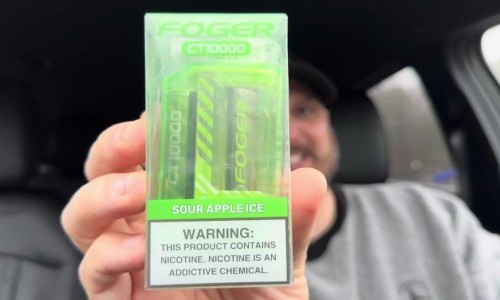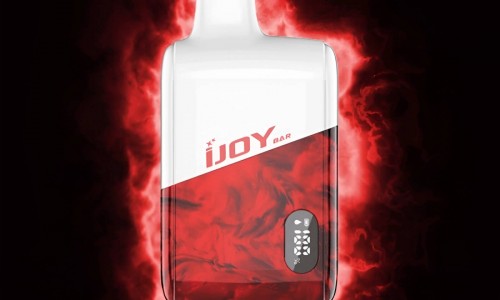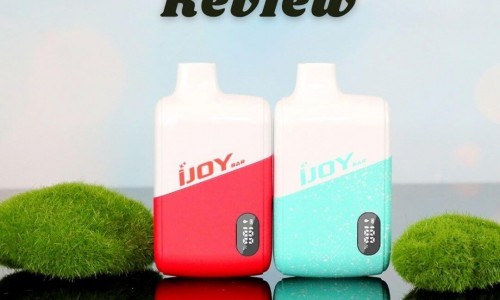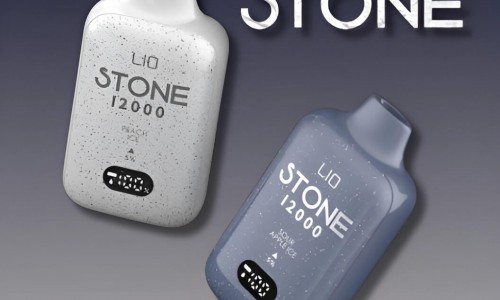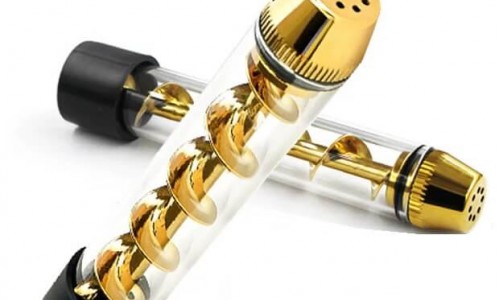Investing in the CBD Industry and Vaping Consumption

Investing in the CBD Industry and Vaping Consumption: A Guide for Beginners
CBD, or cannabidiol, is one of the most popular and promising compounds derived from the cannabis plant. It has a wide range of therapeutic benefits, such as relieving pain, anxiety, inflammation, epilepsy, and more.
Unlike THC, the psychoactive component of cannabis, CBD does not cause intoxication or addiction. CBD can be consumed in various forms, such as oils, capsules, edibles, topicals, and vapes. The CBD market is booming thanks to the increasing demand, legalization, and innovation in the industry.
According to a report by Grand View Research, the global CBD market size was valued at USD 2.8 billion in 2020 and is expected to grow at a compound annual growth rate (CAGR) of 21.2% from 2021 to 2028.
The report also states that the vaping segment accounted for the largest revenue share in 2020, with a market value of USD 1.2 billion. Vaping CBD is a fast and effective way to deliver CBD into the bloodstream, bypassing the digestive system and the liver. Vaping CBD also allows users to control the dosage and flavor of their CBD products.
Learning How To Invest in the CBD Market
However, vaping CBD also comes with some risks, such as potential lung damage, allergic reactions, drug interactions, and quality issues. If you are interested in investing in the CBD industry and vaping trends, this blog post offers valuable information and expert tips. You'll learn about:
- How to invest in the CBD industry
- How to start a CBD dropshipping business
- How to start a CBD business
- How much do you need to start a CBD business
- How to open a CBD store
- What are the top 5 CBD companies
| Topic | Summary |
|---|---|
| How to invest in the CBD industry | You can invest in the CBD industry by buying stocks, ETFs, or crowdfunding projects of CBD companies. You should conduct thorough research, diversify your portfolio, and be aware of both legal and market risks. |
| How to start a CBD dropshipping business | If you don't know how to start a CBD dropshipping business, you can start by finding a reliable supplier, choosing a niche, creating a website, and marketing your products. You can benefit from low overhead, high demand, and flexibility. You should also comply with the laws, ensure product quality, and handle customer service. |
| How to start a CBD business | If you don't know how to start a CBD business, you can begin by manufacturing, wholesaling, or retailing CBD products. You should register your business, obtain the necessary licenses, source your products, and establish a brand for your business. You should also use online platforms, courses, and guides to help you. |
| How much do you need to start a CBD business? | If you don't know how much you need to start a CBD business, you need to estimate the initial and ongoing costs, such as inventory, equipment, packaging, marketing, etc. You should also consider the factors that affect your profitability and scalability, such as demand, competition, pricing, etc. You should also utilize strategies and tips to reduce costs and increase revenue, such as outsourcing, automation, and partnerships. |
How to Invest in the CBD Industry
One of the easiest and most common ways to invest in the CBD industry is to buy stocks of CBD companies. You can choose from a variety of CBD stocks, such as:
- Pure-play CBD stocks: These companies focus exclusively on CBD products, such as Charlotte's Web, CV Sciences, and Elixinol.
- Cannabis stocks with CBD exposure: These are companies that produce both THC and CBD products, such as Canopy Growth, Aurora Cannabis, and Tilray.
- Ancillary CBD stocks: These companies provide services or products to the CBD industry, such as KushCo Holdings, Innovative Industrial Properties, and GrowGeneration.
How to Invest in the CBD Industry with an ETF?
Another way to invest in the CBD industry is to buy exchange-traded funds ETFs that track the performance of a basket of CBD stocks. Some examples of CBD ETFs are:
- AdvisorShares Pure US Cannabis ETF (MSOS): This is the first US-listed ETF to focus on the US cannabis market, including companies involved in CBD. It has a net asset value of USD 1.1 billion and an expense ratio of 0.74%.
- Global X Cannabis ETF (POTX): This ETF invests in companies across the cannabis industry, including those involved in CBD production. It has a net asset value of USD 133 million and an expense ratio of 0.50%.
- ETFMG Alternative Harvest ETF (MJ): This is the largest and oldest cannabis ETF, which invests in companies involved in the legal production, growth, and distribution of cannabis and hemp, including CBD companies. It has a net asset value of USD 1.4 billion and an expense ratio of 0.75%.
What are the Crowdfunding Platforms that Support CBD Startups?
A third way to invest in the CBD industry is to participate in crowdfunding platforms that allow you to support CBD startups and projects. Some examples of crowdfunding platforms for CBD are:
- Fundanna: This platform connects accredited and non-accredited investors with CBD and cannabis startups. You can invest as little as USD 100 and receive equity, tokens, or rewards in return.
- CBD Capital Group: This platform provides debt and equity financing to CBD and hemp companies. You can invest as little as USD 25,000 and receive interest, dividends, or equity in return.
- EquityNet: This platform enables entrepreneurs to raise capital from investors, including those in the CBD and cannabis industries. You can invest as little as USD 5,000 and receive equity, debt, or revenue share in return.
What Are the Risks of Investing in the CBD Market?
Before investing in the CBD industry, conduct thorough due diligence and research the companies, products, and markets that interest you. You should also diversify your portfolio and invest only what you can afford to lose. You should also be aware of the legal and market risks involved in the CBD industry, such as:
- Legal risks: The CBD industry is subject to complex and evolving regulations, which vary by country, state, and product type. Some CBD products are legal, while others are illegal or restricted. You should check the legal status of CBD in your jurisdiction and the jurisdiction of the companies you invest in. You should also monitor any changes in the laws and regulations that may affect the CBD industry.
- Market risks: The CBD industry is highly competitive and dynamic, resulting in fluctuations in demand, supply, price, and quality of CBD products. You should also consider the potential impact of new entrants, substitutes, competitors, and innovations on the CBD industry. You should also be prepared for market volatility, uncertainty, or downturns that may affect the CBD industry.
How to Open a CBD Store
Consider opening a physical CBD store to sell CBD products directly to customers. A CBD store can help you build customer loyalty, brand awareness, and community engagement.
However, opening a CBD store also presents several challenges, including ensuring legal compliance, selecting the ideal location, designing the store, and providing exceptional customer service. How to open a CBD store? You should follow these steps:
- Check the laws and regulations: As mentioned before, the CBD industry is subject to complex and evolving rules and regulations, which vary by country, state, and product type. You should consult a lawyer and obtain the necessary licenses and permits to operate a CBD store in your jurisdiction. You should also comply with the labeling, testing, and packaging requirements for CBD products.
- Please choose a location: The location of your CBD store is crucial for your success, as it affects your visibility, accessibility, and profitability. Select an area with high foot traffic, low competition, and a target market that matches your niche. You should also consider the rent, utilities, security, and parking costs of your location.
- Design your store: The design of your CBD store should reflect your brand identity, product range, and customer preferences. You should create a layout that maximizes space, showcases the products, and facilitates customer flow. You should also choose a color scheme, lighting, furniture, and decorations that create a welcoming and professional ambiance for your CBD store.
- Attract and retain customers: The most crucial aspect of operating a CBD store is attracting and retaining customers. You should utilize various marketing strategies, such as online advertising, social media, email marketing, and SEO, to promote your CBD store and generate leads. You should also offer incentives, such as samples, discounts, loyalty programs, referrals, etc., to encourage customers to buy from you and return. You should also provide excellent customer service, such as answering questions, providing education, and soliciting feedback, to build customer trust and satisfaction.
What Are the Top 5 CBD Companies
The CBD industry is highly competitive and dynamic, with hundreds of companies vying for a market share. However, some CBD companies stand out from the rest due to their revenue, market share, reputation, product quality, customer satisfaction, and other factors. What are the top 5 CBD companies in the world, based on our analysis:
| Rank | Company | Overview | SWOT Analysis |
|---|---|---|---|
| 1 | Charlotte's Web | Charlotte's Web is the leading CBD company in the US, with a market share of 14%. It was founded in 2011 by the Stanley Brothers, who created a high-CBD strain of hemp for a girl named Charlotte Figi, who suffered from a rare form of epilepsy. The company produces and sells a range of CBD products, including oils, capsules, gummies, topicals, and pet products. | Strengths: - Strong brand recognition and loyalty - High product quality and consistency - Wide product range and distribution - Social and environmental responsibility Weaknesses: - Dependence on the US market - Legal uncertainty and regulatory compliance - High production and operating costs Opportunities: - Growing demand and awareness for CBD products - International expansion and partnerships - Innovation and product development - E-commerce and online marketing Threats: - Intense competition and price pressure - Legal and regulatory changes and challenges - Customer preferences and expectations - Market volatility and uncertainty |
| 2 | Canopy Growth | Canopy Growth is the largest cannabis company in the world, with a market value of USD 10.6 billion. It was founded in 2013 by Bruce Linton and Mark Zekulin, who saw the potential of the medical cannabis market in Canada. The company produces and sells both THC and CBD products, such as oils, soft gels, beverages, edibles, vapes, and cosmetics. The company also partnered with Martha Stewart, who launched her line of CBD products under the Canopy Growth umbrella. | Strengths: - Global presence and leadership - Diversified product portfolio and revenue streams - Strategic partnerships and acquisitions - Research and development capabilities Weaknesses: - High debt and cash burn - Low profitability and margins - Operational inefficiencies and challenges - Legal and regulatory risks Opportunities: - Growing legalization and acceptance of cannabis and CBD products - New markets and segments - New products and categories - Brand differentiation and positioning Threats: - Fierce competition and market saturation - Price erosion and commoditization - Consumer trends and preferences - Legal and regulatory changes and uncertainties |
| 3 | CV Sciences | CV Sciences is one of the leading CBD companies in the US, with a market share of 11%. It was founded in 2010 by Michael Mona Jr. and Michael Mona III, who wanted to create a natural alternative to prescription drugs. The company produces and sells two lines of CBD products: PlusCBD, a consumer brand offering oils, soft gels, gummies, sprays, balms, and lotions, and CV Acute, a clinical brand featuring a patented formula for immune support. | Strengths: - Strong brand reputation and awareness - High product quality and safety - Scientific validation and clinical trials - Distribution and retail partnerships Weaknesses: - Dependence on the US market - Limited product diversity and innovation - Legal and regulatory compliance - High marketing and sales costs Opportunities: - Growing demand and awareness for CBD products - International expansion and distribution - Product development and diversification - E-commerce and online presence Threats: - Intense competition and price pressure - Legal and regulatory changes and challenges - Customer preferences and expectations - Market volatility and uncertainty |
| 4 | Elixinol | Elixinol is one of the leading CBD companies globally, with a presence in over 40 countries. It was founded in 2014 by Paul Benhaim, who has been involved in the hemp industry since 1991. The company produces and sells a range of CBD products, including oils, capsules, gummies, skincare products, and pet care items. The company also has a subsidiary, Hemp Foods Australia, which produces and sells hemp-based food products, including seeds, oil, and protein. | Strengths: - Global reach and expansion - High product quality and standards - Wide product range and categories - Social and environmental responsibility Weaknesses: - Low profitability and revenue growth - High operational and financial costs - Legal and regulatory compliance - Brand recognition and differentiation Opportunities: - Growing demand and awareness for CBD products - New markets and segments - Innovation and product development - E-commerce and online marketing Threats: - Intense competition and price pressure - Legal and regulatory changes and challenges - Customer preferences and expectations - Market volatility and uncertainty |
| 5 | Tilray | Tilray is one of the largest cannabis companies in the world, with a market value of USD 4.6 billion. It was founded in 2013 by Brendan Kennedy, Michael Blue, and Christian Groh, who wanted to create a global leader in the medical cannabis industry. The company produces and sells both THC and CBD products, such as oils, capsules, flowers, pre-rolls, and edibles. The company also partners with AB InBev, the world's largest brewer, to develop and market cannabis-infused beverages. | Strengths: - Global presence and leadership - Diversified product portfolio and revenue streams - Strategic partnerships and acquisitions - Research and development capabilities Weaknesses: - High debt and cash burn - Low profitability and margins - Operational inefficiencies and challenges - Legal and regulatory risks Opportunities: - Growing legalization and acceptance of cannabis and CBD products - New markets and segments - New products and categories - Brand differentiation and positioning Threats: - Fierce competition and market saturation - Price erosion and commoditization - Consumer trends and preferences - Legal and regulatory changes and uncertainties |
If you've found yourself intrigued by the insights shared in this article, delving deeper into the realm of CBD might be the next step for you. Understanding what CBD is and its potential applications can open up a world of possibilities.
From alleviating pain and anxiety to its role in epilepsy treatment, CBD has garnered significant attention for its potential wellness advantages. Unlike its counterpart, THC, CBD doesn't induce intoxication, making it a popular choice for those seeking relief without psychoactive effects.
With various consumption methods available, including oils, capsules, edibles, topicals, and vaping, individuals can tailor their CBD experience to suit their preferences and needs.

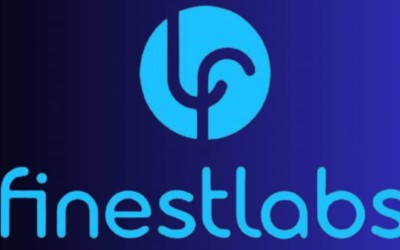
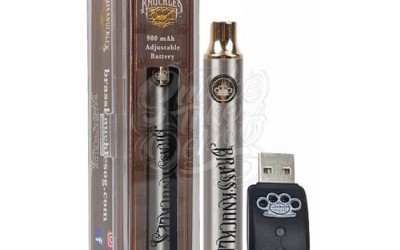
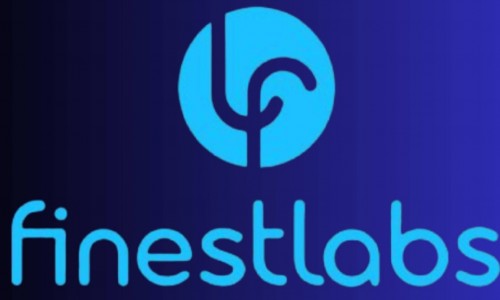
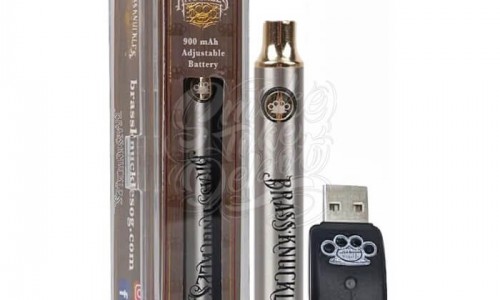





-500x300w.jpeg)

